Make sure to read part 1 first!
Ontological Monism
Classical phenomenology cont.
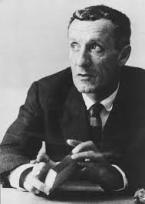 Another example is Maurice Merleau-Ponty who, putting the body at the center of his philosophy, interpreted us humans as transcendence. If this is the case, then the body merely serves as a vehicle for us, a sensory apparatus by which we apprehend and access the world. Even in moments of withdrawal, like when, after a long, tiring day, we come home, lie on the bed, and close our eyes, taking a brief retreat from the world and the concerns of life; when we would like to block out all the stimulus in order to rest within ourselves—even then, Henry says, we cannot ignore the fact that this is a reprieve that is nonetheless in the world from which we are trying to escape, according to Merleau-Ponty, considering not only that there is no interior into which to go, but also that every action of ours, “private” or not, is configured in the world, outside of itself. Henry argues that the problem created here is one-sided.
Another example is Maurice Merleau-Ponty who, putting the body at the center of his philosophy, interpreted us humans as transcendence. If this is the case, then the body merely serves as a vehicle for us, a sensory apparatus by which we apprehend and access the world. Even in moments of withdrawal, like when, after a long, tiring day, we come home, lie on the bed, and close our eyes, taking a brief retreat from the world and the concerns of life; when we would like to block out all the stimulus in order to rest within ourselves—even then, Henry says, we cannot ignore the fact that this is a reprieve that is nonetheless in the world from which we are trying to escape, according to Merleau-Ponty, considering not only that there is no interior into which to go, but also that every action of ours, “private” or not, is configured in the world, outside of itself. Henry argues that the problem created here is one-sided.
 The body, for Merleau-Ponty, is subjectivity; it is not that we “have” bodies, but that we are our bodies. Yet by committing himself to a phenomenological paradigm that excludes all non-representability, he cannot answer the following essential question: “How does this body which knows a world, know itself?” (107). Henry is asking how it is possible that we, as our bodies, can know ourselves from within, given that the body only gives us access to the world, to what is beyond us, what transcends our very bodies. Since we are our bodies, we cannot somehow get outside ourselves. But could we not use a mirror, as I mentioned previously? Yes—except, that only represents our physical appearance, which is literally skin-deep. Does the burden not rest on Henry, therefore, to prove to us why there should be anything beneath our skin, something that we might be able to see that the mirror cannot?
The body, for Merleau-Ponty, is subjectivity; it is not that we “have” bodies, but that we are our bodies. Yet by committing himself to a phenomenological paradigm that excludes all non-representability, he cannot answer the following essential question: “How does this body which knows a world, know itself?” (107). Henry is asking how it is possible that we, as our bodies, can know ourselves from within, given that the body only gives us access to the world, to what is beyond us, what transcends our very bodies. Since we are our bodies, we cannot somehow get outside ourselves. But could we not use a mirror, as I mentioned previously? Yes—except, that only represents our physical appearance, which is literally skin-deep. Does the burden not rest on Henry, therefore, to prove to us why there should be anything beneath our skin, something that we might be able to see that the mirror cannot?
He seems to when he explains that “the power which opens us up to the world cannot do what it does unless it is first of all our power, unless it is in our possession” (Ibid.). In order for the world to be visible and for me to then see it, I must have vision, the power of sight; otherwise, my relation to the world is a blind, empty relating that has no content. My transcendence, which puts me “in touch” with the world, so  to speak, must have some basis in my body that is under my control. Must this really be the case? Why cannot transcendence merely transcend by itself? Cannot transcendence be mine without necessarily being voluntary? This is a good question, but we must remember that Henry is writing from a phenomenological basis, that is, from the first-person view. When I tap the keys on my computer to type this, I am certainly transcending myself, interacting with an external object in the world, producing words on the screen; but more importantly, it is I who am producing the transcendence in the first place with every use of my hands that I make. With this insight in mind, Henry ultimately wants to prove that “the body is… the true subject, as the source of our sensitive knowledge”—in fact, “the sum and the foundation of all possible knowledge” (106; emphasis mine).
to speak, must have some basis in my body that is under my control. Must this really be the case? Why cannot transcendence merely transcend by itself? Cannot transcendence be mine without necessarily being voluntary? This is a good question, but we must remember that Henry is writing from a phenomenological basis, that is, from the first-person view. When I tap the keys on my computer to type this, I am certainly transcending myself, interacting with an external object in the world, producing words on the screen; but more importantly, it is I who am producing the transcendence in the first place with every use of my hands that I make. With this insight in mind, Henry ultimately wants to prove that “the body is… the true subject, as the source of our sensitive knowledge”—in fact, “the sum and the foundation of all possible knowledge” (106; emphasis mine).
A Phenomenology of the Soul
The Subjective Body
 Up to this point, little-to-nothing has been said about the soul, despite that being the subject of the article. Henry seems more interested in criticizing Kant and previous phenomenologists than he does in proving the soul, as he announced he would be doing. However, everything that has been said so far has been necessary, for based on the criticisms he makes, you might have caught on to his strategy: Henry has to first establish that we can experience things which, until now, we thought we could not experience—things which are not empirical, physical, or external—before he can proceed to give his evidence for the mysterious phenomenon we call the soul, which is traditionally conceived of as non-empirical, non-physical, and internal.
Up to this point, little-to-nothing has been said about the soul, despite that being the subject of the article. Henry seems more interested in criticizing Kant and previous phenomenologists than he does in proving the soul, as he announced he would be doing. However, everything that has been said so far has been necessary, for based on the criticisms he makes, you might have caught on to his strategy: Henry has to first establish that we can experience things which, until now, we thought we could not experience—things which are not empirical, physical, or external—before he can proceed to give his evidence for the mysterious phenomenon we call the soul, which is traditionally conceived of as non-empirical, non-physical, and internal.
On the other hand, Henry does want to alter what we mean by “empirical,” such that, if he can provide a phenomenological description of the soul by which we can experience it, then it will indeed count as a phenomenon. In the end, it is a matter of criteria: Henry cares very much about what we can experience and what goes by the name of “empirical,” but it all depends on what we think stands up to scrutiny under that definition; and, in his analysis, the criteria of exteriority, transcendence, and representation are not wrong, per se—just limiting.
 So at this point, Henry introduces the notion of the “subjective body,” that is, the body as we experience it firsthand, as distinguished from the body visible in the mirror and to others. In principle, the subjective body must be invisible. Here, too, we must clarify that “invisibility” should not be thought of magically—as, say, a puff of smoke or something nonexistent—but exactly as it sounds like: What is invisible, cannot be seen—that is all. To be invisible is not to not exist. If we were to believe that, then we would once again fall into ocularcentrism. Each of us has thoughts (often more than we would like), yet we cannot see them. Thoughts are not visible, cannot be put before our eyes, so does that mean we should consider them as nothing? But then, when we cannot sleep at night for too much thinking, when we worry how others perceive us, when we plan out our days—are we being affected by “nothing”? If we can reject this, then we can accept the idea (or reality) of the subjective body.
So at this point, Henry introduces the notion of the “subjective body,” that is, the body as we experience it firsthand, as distinguished from the body visible in the mirror and to others. In principle, the subjective body must be invisible. Here, too, we must clarify that “invisibility” should not be thought of magically—as, say, a puff of smoke or something nonexistent—but exactly as it sounds like: What is invisible, cannot be seen—that is all. To be invisible is not to not exist. If we were to believe that, then we would once again fall into ocularcentrism. Each of us has thoughts (often more than we would like), yet we cannot see them. Thoughts are not visible, cannot be put before our eyes, so does that mean we should consider them as nothing? But then, when we cannot sleep at night for too much thinking, when we worry how others perceive us, when we plan out our days—are we being affected by “nothing”? If we can reject this, then we can accept the idea (or reality) of the subjective body.
 To speak of the knowledge of the body is really to speak of two things: first, the knowledge acquired through the body, i.e., knowledge of the world, which is what all other philosophers have discussed; and second, the knowledge of the body through the body itself, which is what Henry wants to describe. How do I know my subjective body? Well, surely not by looking down at my hands as they type or my legs hanging over the edge of my chair, since then I am observing my objective body. Henry’s philosophical hero, Maine de Biran (1766-1824), provides the answer in his refutation of an earlier philosopher, Condillac. According to Condillac, if we close our eyes and remain still, feeling the various sensations present, then we cannot technically localize these feelings without first mapping out the body in order to recognize them as such; therefore, we must outline our bodies—for example, by hand—with reference to some solidity, i.e., resistance.
To speak of the knowledge of the body is really to speak of two things: first, the knowledge acquired through the body, i.e., knowledge of the world, which is what all other philosophers have discussed; and second, the knowledge of the body through the body itself, which is what Henry wants to describe. How do I know my subjective body? Well, surely not by looking down at my hands as they type or my legs hanging over the edge of my chair, since then I am observing my objective body. Henry’s philosophical hero, Maine de Biran (1766-1824), provides the answer in his refutation of an earlier philosopher, Condillac. According to Condillac, if we close our eyes and remain still, feeling the various sensations present, then we cannot technically localize these feelings without first mapping out the body in order to recognize them as such; therefore, we must outline our bodies—for example, by hand—with reference to some solidity, i.e., resistance.
Biran noticed a circular fallacy here. The goal is to know our bodies, to “discover” them, as it were, so Condillac’s solution is to identify the body through the touch of the hand (Condillac was, in Beyoncé’s words, “feeling himself”). Yet to discover the body with the hand requires that we have first discovered the hand itself, which is part of the body. We would need another hand to discover the hand that discovers the body, for how else would we know our hands belong to us? Such a view is ridiculous. As such, the hand must be known, must know itself—and by extension, the body as a whole must, too. This primordial power of movement is what Henry was referring to earlier when of having certain “power[s]… in our possession.”
The Power of Life

Photo by Mohamed ELamine Msiouri on Pexels.com
Going back to the mirror example, transcendent intentionality, e.g., sight, cannot account for the movement of our eyes, hands, legs, etc. When I look from left to right quickly enough and see the shift happen in the mirror with a slight delay, I am merely seeing an effect, not the cause. Henry writes, “Intentional knowledge consists in the establishment of a distance which insurmountably separates us from that to which it unites us. It opens beneath us an unbridgeable gap. It is in and through this gap that the ‘giving’ of something takes place” (109); in contrast, “The original knowledge which we have of the power of grasping is not intentional and it cannot be such” (Ibid.). To summarize: Seeing my hand move is not the same operation by which I move my hand; the first is intentional in that it occurs at a distance, whereas the second is kinesic in that it is willed without distance from itself.
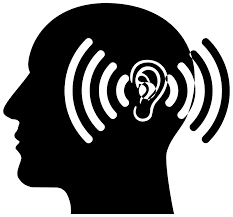 “[F]or every true power,” Henry continues, “a first power is given, precisely that of being itself, of being master of itself… in the immanence of its radical interiority” (110). This essentially means that every sense of ours, even the intentional ones—especially the intentional ones—is mine. The power of smell, of hearing, of sight—these all have a “first power”: That of being usable/sensible. They are “radical[ly] interior” insofar as I experience them internally, not externally. Yes, it is true that the birdsong that I hear is external to me, coming from beyond my room, and that the floor is literally beneath my foot, beneath me; regardless, I receive these impressions within and feel them there. It may well be that the pressure I currently feel is created by the contact between my foot and the carpet, but notice what I just said: “the pressure I currently feel.” I know of the pressure on my soles not by looking down and seeing that, oh yes, my foot is pressing against the carpet, but by feeling the pressure in my feet, which requires no mediation whatsoever, e.g., by sight.
“[F]or every true power,” Henry continues, “a first power is given, precisely that of being itself, of being master of itself… in the immanence of its radical interiority” (110). This essentially means that every sense of ours, even the intentional ones—especially the intentional ones—is mine. The power of smell, of hearing, of sight—these all have a “first power”: That of being usable/sensible. They are “radical[ly] interior” insofar as I experience them internally, not externally. Yes, it is true that the birdsong that I hear is external to me, coming from beyond my room, and that the floor is literally beneath my foot, beneath me; regardless, I receive these impressions within and feel them there. It may well be that the pressure I currently feel is created by the contact between my foot and the carpet, but notice what I just said: “the pressure I currently feel.” I know of the pressure on my soles not by looking down and seeing that, oh yes, my foot is pressing against the carpet, but by feeling the pressure in my feet, which requires no mediation whatsoever, e.g., by sight.
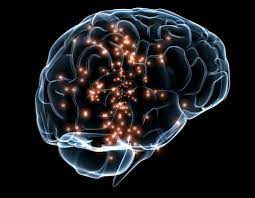 External stimuli impact us, to be sure, but for those who are physiologically or neurologically minded, we know, first, that these data need to be interpreted by the brain; and second, that in order to be interpreted at all, they must first be received. Henry is making an argument that many might find laughable: I prove my free will by willing freely. If a neurologist or cognitive psychologist informs me that I do not have free will since my brain, and not “I,” makes my decisions, or if a skeptic instills doubt that my actions are really caused by an evil demon, then Henry’s response is the same as that of Diogenes the Cynic to the Eleatics, or of Samuel Johnson to George Berkeley: I simply walk, or else I kick a stone, exclaiming, “I refute it thus!” For this reason, Henry warns against the disjunction of the “I” from its powers, because this leads to the reduction of our senses to pure transcendence, which in turn reinstates the mind-body problem.
External stimuli impact us, to be sure, but for those who are physiologically or neurologically minded, we know, first, that these data need to be interpreted by the brain; and second, that in order to be interpreted at all, they must first be received. Henry is making an argument that many might find laughable: I prove my free will by willing freely. If a neurologist or cognitive psychologist informs me that I do not have free will since my brain, and not “I,” makes my decisions, or if a skeptic instills doubt that my actions are really caused by an evil demon, then Henry’s response is the same as that of Diogenes the Cynic to the Eleatics, or of Samuel Johnson to George Berkeley: I simply walk, or else I kick a stone, exclaiming, “I refute it thus!” For this reason, Henry warns against the disjunction of the “I” from its powers, because this leads to the reduction of our senses to pure transcendence, which in turn reinstates the mind-body problem.
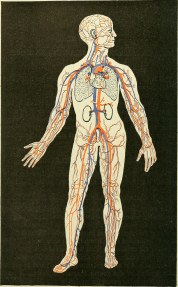 Henry thus overcomes Cartesian dualism, the split between mind and body, by means of a different dualism—the objective, external body and the subjective, internal body. It is not a matter of their being two different entities, as if one body were stuffed into the other and wore it as a suit; instead, Henry understands these to be two different modes of manifestation, different ways of being. Prioritizing the objective body leads to the instrumentalization, and with it the alienation, of the lived body. Reduced to purely objective parts, stripped of any causal power, constituted entirely by intentionality, our body would be lifeless and inert; the brain, as pure matter charged with electricity, is on the same level as every other organ, and so cannot properly discharge the action which, at a phenomenological level, we experience. I must be identified with my body and its powers in order to dispose of them. Against Kant and Condillac, Henry maintains, “We do not sense our original body and we cannot sense it” (111). With everything that has just been said, this may seem surprising. But Henry is using “sense” here to refer to a transcendent reception, that is, a Kantian intuition. The body is insensible because it is the ability to feel at all.
Henry thus overcomes Cartesian dualism, the split between mind and body, by means of a different dualism—the objective, external body and the subjective, internal body. It is not a matter of their being two different entities, as if one body were stuffed into the other and wore it as a suit; instead, Henry understands these to be two different modes of manifestation, different ways of being. Prioritizing the objective body leads to the instrumentalization, and with it the alienation, of the lived body. Reduced to purely objective parts, stripped of any causal power, constituted entirely by intentionality, our body would be lifeless and inert; the brain, as pure matter charged with electricity, is on the same level as every other organ, and so cannot properly discharge the action which, at a phenomenological level, we experience. I must be identified with my body and its powers in order to dispose of them. Against Kant and Condillac, Henry maintains, “We do not sense our original body and we cannot sense it” (111). With everything that has just been said, this may seem surprising. But Henry is using “sense” here to refer to a transcendent reception, that is, a Kantian intuition. The body is insensible because it is the ability to feel at all.

Photo by Skitterphoto on Pexels.com
To illustrate this, and to contest the explanatory power of behaviorism and neurology, Henry uses the example of two wrestlers fighting. We might say that we are moving our body because we can feel our muscles being engaged. Wrestler B locks his arm around wrestler A’s neck, and wrestler A pushes against the chest of his antagonist. Here, we must say that since wrestler A’s neck and arm muscles are activated, he is moving his neck and arm; however, this is only half correct, as it is only the case that he is using his arm, whereas pressure is exerted on him by wrestler B. Whether the sensation is caused internally, by wrestler A, or externally, by Wrestler B, is indeterminable from an observational point of view. An fMRI or EEG scan can show that sensation is being felt in a particular part of the body, but it can say nothing about the origin of that sensation. Only wrestler A, who is in the heat of the action, the one actually fighting in the ring, has the right to say whether he moved his limbs or not; a spectator cannot determine this. As a result, “movement is not known by anything other than itself” (Ibid.).
 And it is this self-knowing, this self-sensing that Henry calls auto-affection. Tilting my head to the side to get a better view of the landscape, lifting a barbell in the gym, washing my hands in the sink—in each of these cases, I am both the subject and the object, so to speak; my ipseity, that is, my selfhood, that about which I can say “I,” is constituted by this reflexivity. Squatting down, I feel the contraction in my glutes and hamstrings, and this self-inflicted sensation is mine, is me. It is not that I order my body to squat, and then I squat; rather, I am the movement of the squat in the movement itself, in and through it. Receiving a high five from a friend, I am affected by something other than myself, but the stinging that lingers afterward and that I cannot shake off is an instance of auto-affection, leading Henry to declare, “Corporeity is a radical interiority” (112). I feel myself in my feeling (myself).
And it is this self-knowing, this self-sensing that Henry calls auto-affection. Tilting my head to the side to get a better view of the landscape, lifting a barbell in the gym, washing my hands in the sink—in each of these cases, I am both the subject and the object, so to speak; my ipseity, that is, my selfhood, that about which I can say “I,” is constituted by this reflexivity. Squatting down, I feel the contraction in my glutes and hamstrings, and this self-inflicted sensation is mine, is me. It is not that I order my body to squat, and then I squat; rather, I am the movement of the squat in the movement itself, in and through it. Receiving a high five from a friend, I am affected by something other than myself, but the stinging that lingers afterward and that I cannot shake off is an instance of auto-affection, leading Henry to declare, “Corporeity is a radical interiority” (112). I feel myself in my feeling (myself).
Consequently, the lived, subjective body, “this dwelling-place which we are,” says Henry, “is also what we can call our soul” (Ibid.; emphasis mine). Behold!—the magic word for which we have been waiting. Of course, this is a conception of the soul to which we are not accustomed, and for that reason, it may seem familiar to us. The selfhood which the soul generates is a “radical passivity,” and Henry expresses this almost graphically as “the being-riveted to self, without distance, without surpassing, without any possible re-coil, the being which is its own living content, its own life, in an inexorable way, which it cannot not be, cannot escape, nor assume, nor refuse, nor even accept” (113). Plato was fond of comparing the body to a tomb in which the soul was trapped, and this short passage seems to echo the sentiment.

Photo by Quintin Gellar on Pexels.com
We experience ourselves every day, every moment, and we have no choice but to experience ourselves constantly. The soul is the blessing of life and the curse of imprisonment. Whereas Heidegger, Sartre, and Merleau-Ponty investigated the human condition as an external one, in which we are left abandoned in a world of which we have to make sense, Henry, on the other hand, sees our situation as an internal one; the human condition is not about where I happen to be and what I do with that information, but the fact that I am at all, that I am alive, that I feel, that I am self-conscious: “what makes our situation is not the fact that we are in the world, but, more originally… the fact that we are an ‘I'” (114).
Conclusion
In conclusion, for Michel Henry, the soul has a phenomenological reality, namely, that of our individual, finite, powerful, and feeling existence. My life is fundamentally embodied, and I know myself not through purely speculative knowledge nor because “I think, therefore I am,” but because above and before all else, I affect myself. Through the inner force of my will, acting as my body, I experience the richness of  the world sensorily and affectively. Western philosophy, whose rationality reached its clearest summation in the philosophy of Kant, and which received further elaboration through the classic phenomenologists, has always considered real only that which can be observed externally, everything else being reduced to an illusory status. While it is true that Henry was a Christian, I do not think that his argumentation for his eccentric idea of the soul in the article necessarily relies upon or even involves any religious appeals or attempts at indoctrination. Perhaps you disagree with Henry about the soul. What matters, and what makes Henry a good phenomenologist, is that the phenomenon in question be experienceable. The matter should speak for itself; if not, it remains mute. So what do you think?—do you now believe in the/a soul?
the world sensorily and affectively. Western philosophy, whose rationality reached its clearest summation in the philosophy of Kant, and which received further elaboration through the classic phenomenologists, has always considered real only that which can be observed externally, everything else being reduced to an illusory status. While it is true that Henry was a Christian, I do not think that his argumentation for his eccentric idea of the soul in the article necessarily relies upon or even involves any religious appeals or attempts at indoctrination. Perhaps you disagree with Henry about the soul. What matters, and what makes Henry a good phenomenologist, is that the phenomenon in question be experienceable. The matter should speak for itself; if not, it remains mute. So what do you think?—do you now believe in the/a soul?
Source:
Henry, Michel. “Does the Concept “Soul” Mean Anything?” Philosophy Today (Celina), vol. 13, no. 2, 1969, pp. 94-114.
 In 1966,
In 1966, 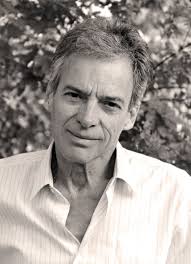 Suffice it to say, it would be difficult to find someone on a city street who believes in a theological or spiritual doctrine of the soul. Interestingly, as a Christian, Henry’s expertise was in phenomenology, which you can think of as a “science of experience” in that it seeks to study how we interact with and perceive the world, usually with a view to articulating its universal structures. Hence, one might be curious whether there is not a conflict of interest here—that is, whether as a phenomenologist one can even study, let alone seriously entertain, the soul. After all, where, in our everyday experiences, do we encounter or perceive such a thing? In this post, I’ll walk through Henry’s article, in which he proposes a unique (and perhaps palatable) conception of the soul. By the end, you can decide for yourself if, in fact, you do have one.
Suffice it to say, it would be difficult to find someone on a city street who believes in a theological or spiritual doctrine of the soul. Interestingly, as a Christian, Henry’s expertise was in phenomenology, which you can think of as a “science of experience” in that it seeks to study how we interact with and perceive the world, usually with a view to articulating its universal structures. Hence, one might be curious whether there is not a conflict of interest here—that is, whether as a phenomenologist one can even study, let alone seriously entertain, the soul. After all, where, in our everyday experiences, do we encounter or perceive such a thing? In this post, I’ll walk through Henry’s article, in which he proposes a unique (and perhaps palatable) conception of the soul. By the end, you can decide for yourself if, in fact, you do have one. One of the contributing factors to the decline of taking the soul seriously was the work of Immanuel Kant, an influential German philosopher who wrote at the height of the Enlightenment in the late 18
One of the contributing factors to the decline of taking the soul seriously was the work of Immanuel Kant, an influential German philosopher who wrote at the height of the Enlightenment in the late 18 transcendental idealism, our knowledge of the world consists of two elements: sensibility and understanding. Whenever we intuit, or perceive, an object, we receive sensations—this is the job of sensibility; and in addition to this, our understanding applies certain categories to the object, enabling intelligibility. For example, the other day, while riding in the car, I saw a stop sign. The red of the sign, its color, immediately struck me; I received the sensation of redness. At the same time, it was not as if I just saw an infinite blob of red, but rather a bounded, octagonal formation of it. Hence, my knowledge of the stop sign was constituted by a combination of sensation, which provides the material basis, and certain categories of understanding, like the fact that the sign was shaped as a polygon, took up space, and was three-dimensional, etc.
transcendental idealism, our knowledge of the world consists of two elements: sensibility and understanding. Whenever we intuit, or perceive, an object, we receive sensations—this is the job of sensibility; and in addition to this, our understanding applies certain categories to the object, enabling intelligibility. For example, the other day, while riding in the car, I saw a stop sign. The red of the sign, its color, immediately struck me; I received the sensation of redness. At the same time, it was not as if I just saw an infinite blob of red, but rather a bounded, octagonal formation of it. Hence, my knowledge of the stop sign was constituted by a combination of sensation, which provides the material basis, and certain categories of understanding, like the fact that the sign was shaped as a polygon, took up space, and was three-dimensional, etc.  the other hand, is actually intuited as empirical. In other words, what is more striking in my experience of the stop sign is not that it takes up space, but that it is red, metallic, and stiff—after all, if there were no steel, and if the steel were not painted red, then there would be nothing
the other hand, is actually intuited as empirical. In other words, what is more striking in my experience of the stop sign is not that it takes up space, but that it is red, metallic, and stiff—after all, if there were no steel, and if the steel were not painted red, then there would be nothing  Conversely, Kant asserted that the “possibility of access to that which is, is objectivity itself in its first arising; it is the formation of this horizon of visibility” (96). In other words, for something to be experienced, it must be objective, meaning that it must be able to be seen; we require an empirical object if we want to represent it to ourselves. However, it is precisely this doctrine of the “horizon of visibility” that Henry wants to subject to an “ontological destruction,” in the hopes of revising Kant’s “idea of being” (95). Doing this is necessary, Henry tells us, because if we take Kant at his word, if we accept his criteria for representability, and if we take a look at his own defense of the ego, which he proposes as an alternative to the soul, then we shall find that he fails to live up to his own standards. For Kant, the self is intuited via an internal sense, which is made up of sensation and time. When I am happy, for instance, I feel the sensations of being uplifted, light, and agreeable, and all of this occurs in a duration,
Conversely, Kant asserted that the “possibility of access to that which is, is objectivity itself in its first arising; it is the formation of this horizon of visibility” (96). In other words, for something to be experienced, it must be objective, meaning that it must be able to be seen; we require an empirical object if we want to represent it to ourselves. However, it is precisely this doctrine of the “horizon of visibility” that Henry wants to subject to an “ontological destruction,” in the hopes of revising Kant’s “idea of being” (95). Doing this is necessary, Henry tells us, because if we take Kant at his word, if we accept his criteria for representability, and if we take a look at his own defense of the ego, which he proposes as an alternative to the soul, then we shall find that he fails to live up to his own standards. For Kant, the self is intuited via an internal sense, which is made up of sensation and time. When I am happy, for instance, I feel the sensations of being uplifted, light, and agreeable, and all of this occurs in a duration, 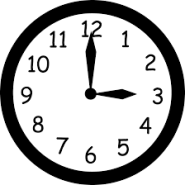 pure time, deprived of any content, is just a theoretical container in which external things come and go. But internal sensations exist, providing us with content! Yet sensation, Kant also tells us, is blind in itself; before it can really
pure time, deprived of any content, is just a theoretical container in which external things come and go. But internal sensations exist, providing us with content! Yet sensation, Kant also tells us, is blind in itself; before it can really  reality, he ended up with a flat, two-dimensional view of the world, one lacking in depth, unable to account for the thickness of living. Like the rationalists he criticized, he left us with a flimsy and ghostlike “I” that lacks any substance: Kant defined the “I” as the “unity of apperception,” meaning that it is what accompanies every one of our experiences as a kind of mental check. For example, this morning, cereal was eaten, teeth were brushed, a computer was opened—and during all of this, an “I,” supposedly
reality, he ended up with a flat, two-dimensional view of the world, one lacking in depth, unable to account for the thickness of living. Like the rationalists he criticized, he left us with a flimsy and ghostlike “I” that lacks any substance: Kant defined the “I” as the “unity of apperception,” meaning that it is what accompanies every one of our experiences as a kind of mental check. For example, this morning, cereal was eaten, teeth were brushed, a computer was opened—and during all of this, an “I,” supposedly 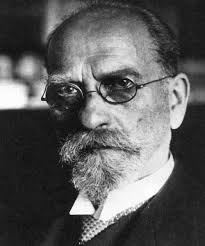 Likewise, phenomenology itself, Henry contends, has either neglected our inner life or else laughed off the notion entirely. If you are familiar with Husserl, though, then this may sound strange, seeing as his transcendental phenomenology aims to provide a “map” of consciousness, as it were, investigating how different mental acts of intentionality, or directedness, constitute their intended objects; in short, Husserl was interested in how our mental processes operate in perceiving the world. Although this is true, Husserl commits the same mistake Kant did, introducing the twin concepts of “noesis”—the mental act—and “noema”—the mental object, which roughly mirrors Kant’s split of intuition into sensibility and understanding. Additionally, all phenomenologists up to Henry have worked under a more-or-less consistent idea of what phenomenology actually is, an idea that finds its clearest expression in the writings of Martin Heidegger.
Likewise, phenomenology itself, Henry contends, has either neglected our inner life or else laughed off the notion entirely. If you are familiar with Husserl, though, then this may sound strange, seeing as his transcendental phenomenology aims to provide a “map” of consciousness, as it were, investigating how different mental acts of intentionality, or directedness, constitute their intended objects; in short, Husserl was interested in how our mental processes operate in perceiving the world. Although this is true, Husserl commits the same mistake Kant did, introducing the twin concepts of “noesis”—the mental act—and “noema”—the mental object, which roughly mirrors Kant’s split of intuition into sensibility and understanding. Additionally, all phenomenologists up to Henry have worked under a more-or-less consistent idea of what phenomenology actually is, an idea that finds its clearest expression in the writings of Martin Heidegger.  to us, something external to us. Therefore, we might say that Henry’s criticism of classical phenomenology is that it is
to us, something external to us. Therefore, we might say that Henry’s criticism of classical phenomenology is that it is  By this logic, the only way I could perceive myself phenomenologically would be by looking at a mirror, since my thoughts, feelings, and urges are nowhere to be seen. Psychology, “psych-,” ψυχή, spirit/breath/soul—when appraised by either Kant or, say, Husserl, psychology can be nothing else but behaviorism, the external observation of humans without any regard for consciousness, intention, drive, or desire. An example of this can be found in none other than Heidegger’s
By this logic, the only way I could perceive myself phenomenologically would be by looking at a mirror, since my thoughts, feelings, and urges are nowhere to be seen. Psychology, “psych-,” ψυχή, spirit/breath/soul—when appraised by either Kant or, say, Husserl, psychology can be nothing else but behaviorism, the external observation of humans without any regard for consciousness, intention, drive, or desire. An example of this can be found in none other than Heidegger’s 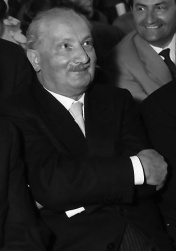 In all likelihood, he did not. However, if you read
In all likelihood, he did not. However, if you read 
